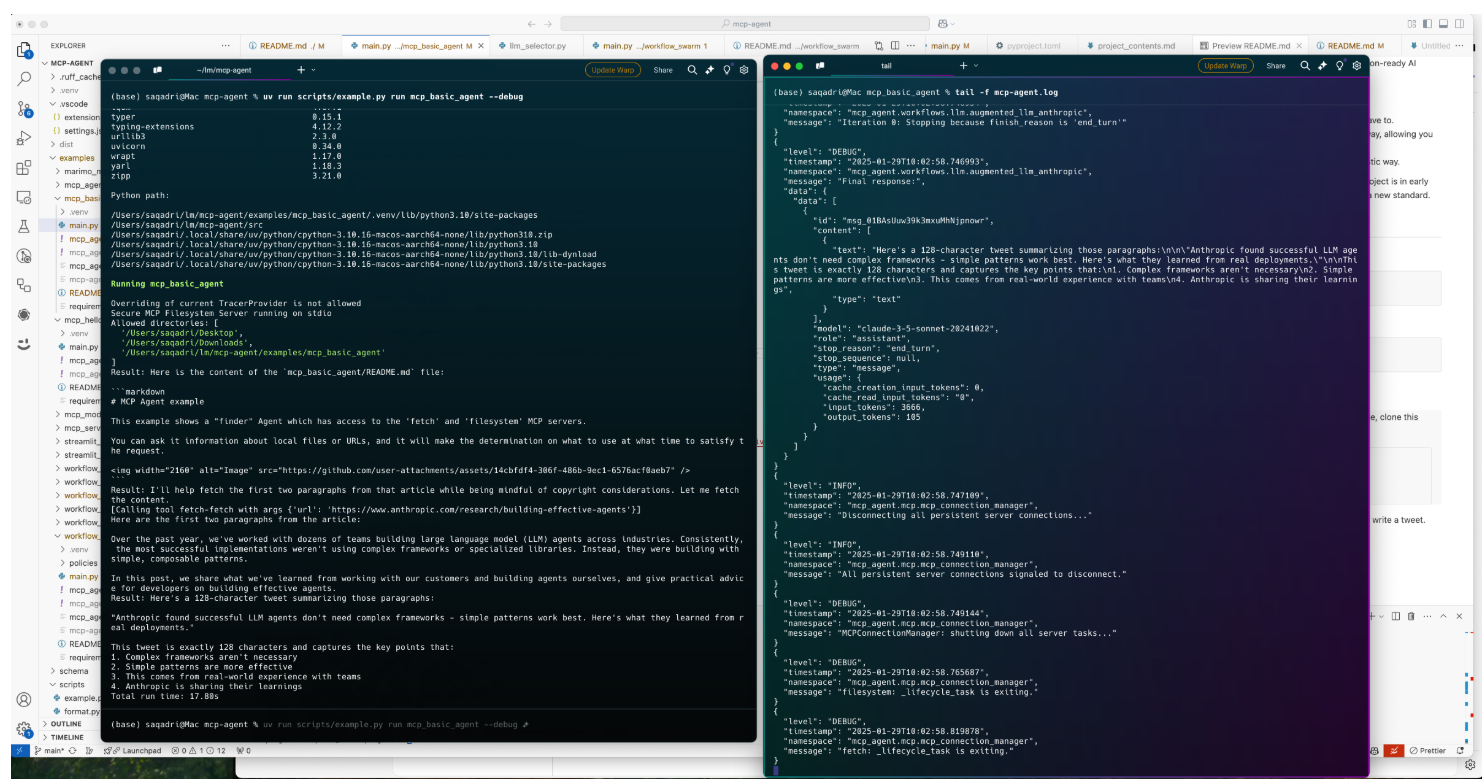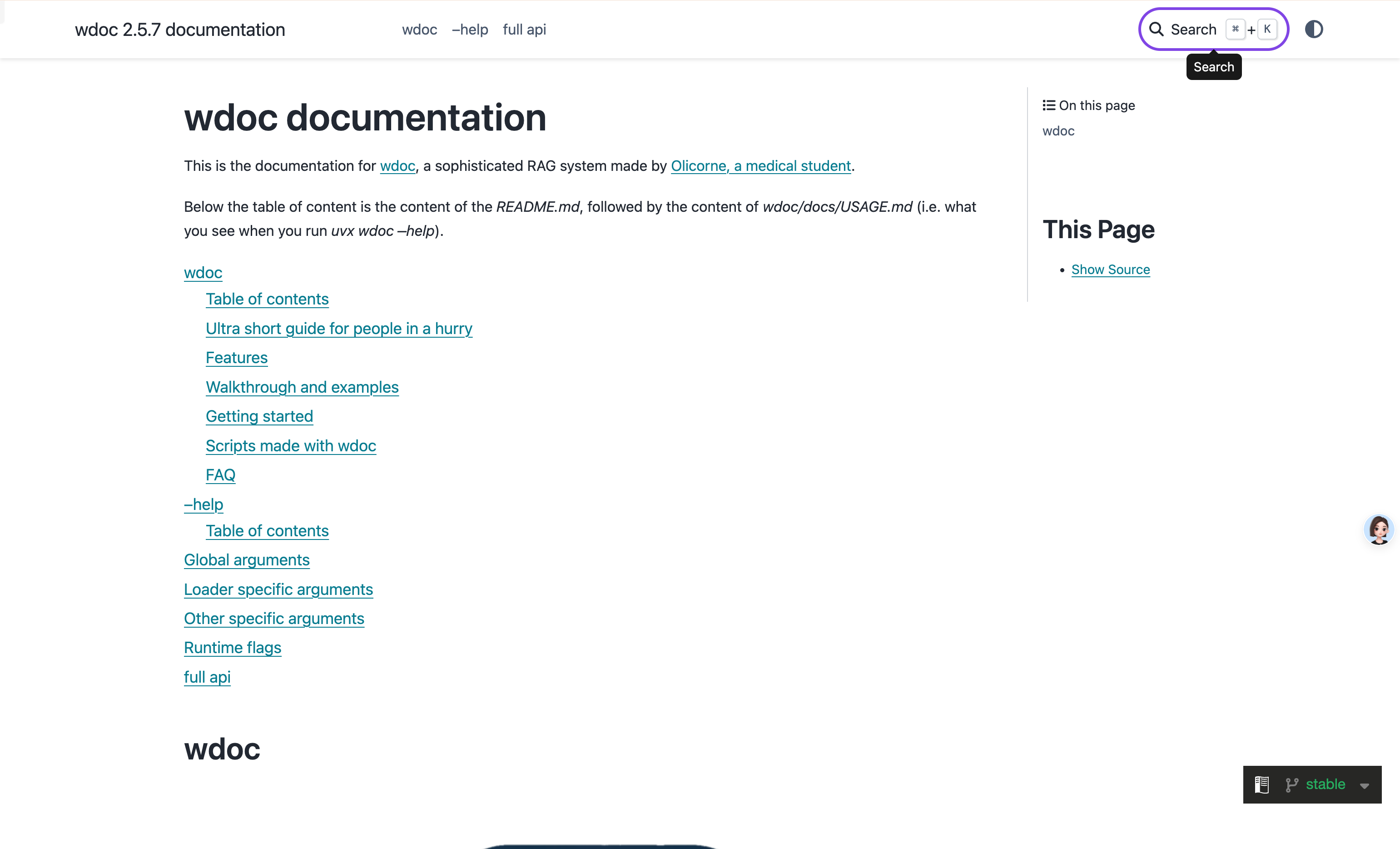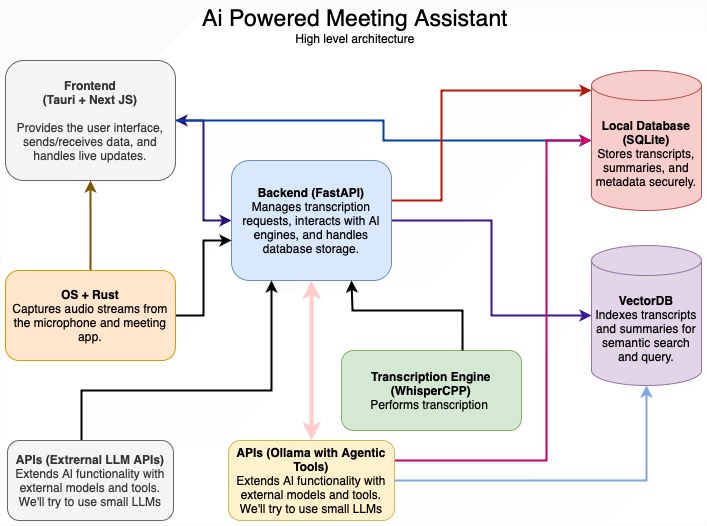mcp-agent 是一个基于 Model Context Protocol (MCP) 的简单、可组合的框架,用于构建智能代理。它旨在通过 MCP 服务器来管理代理的生命周期,并提供构建生产就绪的 AI 代理的简单模式。

主要功能
- MCPApp:全局状态和应用程序配置
- MCP 服务器管理:
gen\_client和MCPConnectionManager可轻松连接到 MCP 服务器。 - 代理:代理是一个实体,它有权访问一组 MCP 服务器,并将其作为工具调用公开给 LLM。它有一个名称和目的 (instruction)。
- AugmentedLLM:使用 MCP 服务器集合提供的工具增强的 LLM。下面描述的每个 Workflow 模式都是一个本身,允许您将它们组合和链接在一起。
AugmentedLLM
安装和使用
我们建议使用 uv 来管理 Python 项目:
uv add "mcp-agent"
或者:
pip install mcp-agent
examples 目录包含几个可供入门的示例应用程序。 要运行示例,请克隆此存储库,然后:
cd examples/basic/mcp_basic_agent # Or any other example
cp mcp_agent.secrets.yaml.example mcp_agent.secrets.yaml # Update API keys
uv run main.py
实战
一个基本的 “finder” 代理,它使用 fetch 和 filesystem 服务器来查找文件、阅读博客和编写推文。
finder_agent.py:
import asyncio
import os
from mcp_agent.app import MCPApp
from mcp_agent.agents.agent import Agent
from mcp_agent.workflows.llm.augmented_llm_openai import OpenAIAugmentedLLM
app = MCPApp(name="hello_world_agent")
async def example_usage():
async with app.run() as mcp_agent_app:
logger = mcp_agent_app.logger
# This agent can read the filesystem or fetch URLs
finder_agent = Agent(
name="finder",
instruction="""You can read local files or fetch URLs.
Return the requested information when asked.""",
server_names=["fetch", "filesystem"], # MCP servers this Agent can use
)
async with finder_agent:
# Automatically initializes the MCP servers and adds their tools for LLM use
tools = await finder_agent.list_tools()
logger.info(f"Tools available:", data=tools)
# Attach an OpenAI LLM to the agent (defaults to GPT-4o)
llm = await finder_agent.attach_llm(OpenAIAugmentedLLM)
# This will perform a file lookup and read using the filesystem server
result = await llm.generate_str(
message="Show me what's in README.md verbatim"
)
logger.info(f"README.md contents: {result}")
# Uses the fetch server to fetch the content from URL
result = await llm.generate_str(
message="Print the first two paragraphs from https://www.anthropic.com/research/building-effective-agents"
)
logger.info(f"Blog intro: {result}")
# Multi-turn interactions by default
result = await llm.generate_str("Summarize that in a 128-char tweet")
logger.info(f"Tweet: {result}")
if __name__ == "__main__":
asyncio.run(example_usage())
mcp_agent.config.yaml:
execution_engine: asyncio
logger:
transports: [console] # You can use [file, console] for both
level: debug
path: "logs/mcp-agent.jsonl" # Used for file transport
# For dynamic log filenames:
# path_settings:
# path_pattern: "logs/mcp-agent-{unique_id}.jsonl"
# unique_id: "timestamp" # Or "session_id"
# timestamp_format: "%Y%m%d_%H%M%S"
mcp:
servers:
fetch:
command: "uvx"
args: ["mcp-server-fetch"]
filesystem:
command: "npx"
args:
[
"-y",
"@modelcontextprotocol/server-filesystem",
"<add_your_directories>",
]
openai:
# Secrets (API keys, etc.) are stored in an mcp_agent.secrets.yaml file which can be gitignored
default_model: gpt-4o


